
American Beautyberry Care & Growth Tips For Flowering Shrubs Lovers
Published: 05/12/2022 | Updated: 13/04/2023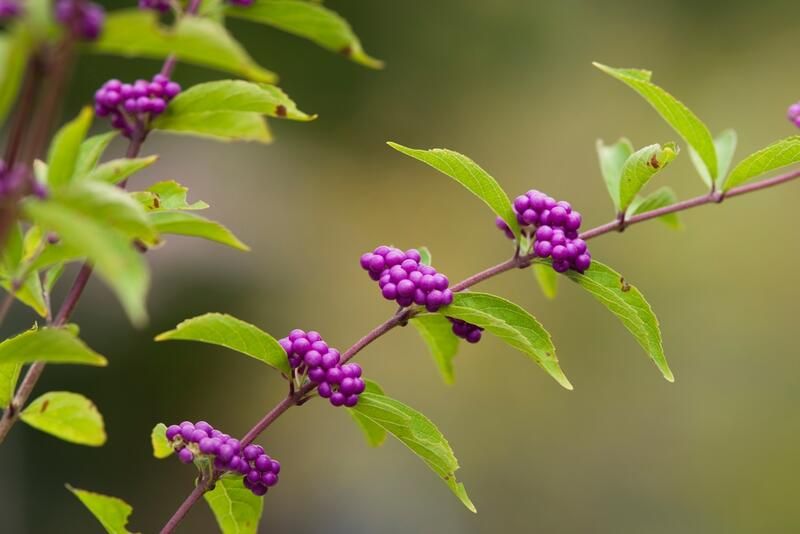
A unique American native with beautiful hibiscus-like flowers and unusually large purple and pink berries, the American beautyberry's nicknames are many: elegant beautyberry, French mulberry, and my favorite: Sour-bush.


It's easy to see these beautiful plants and wonder if you could spruce up your garden with them. However, when it comes to the care of flowers, few people truly understand what can be done to promote beauty and growth.
The simple answer is that there are a lot of great products and techniques out there right now. All you have to do is look for them.
Here are some tips on how to better care for American Beautyberries and create beautiful native gardens in your yard from ShrubHub's plant experts.
About American Beautyberry
The American beautyberry is a native plant of the southeastern U.S. It has glossy dark green leaves and white to dark purple flowers that resemble those of hibiscus.
These native plants are normally found in shady areas, but can also thrive in full sun when planted near a house or other structure for protection from strong winds.
The beautyberry shrubs grow to about 3 feet tall and wide with spreading branches that arch over like a weeping willow tree. They require very little care once established in their location, so they're perfect for novice gardeners who want something beautiful, but low-maintenance!
You can use them as an informal hedge or groundcover, but their rosy flowers make them ideal for growing along a fence or at the edge of your garden.
Even though a beautyberry shrub does not require much maintenance, you should still prune it in late winter to shape it and remove any dead or diseased branches.
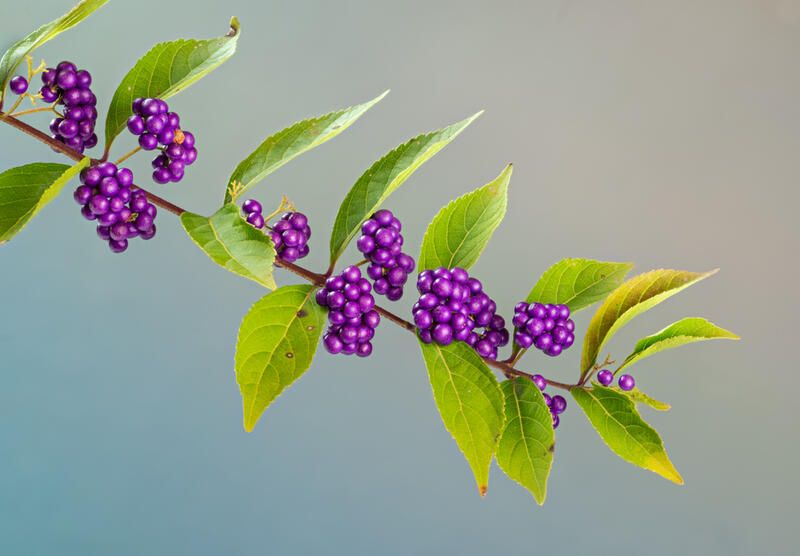
History of American Beautyberry
Callicarpa Americana, which is commonly known as American Beautyberry, is a deciduous shrub that was used by Native Americans to make dyes for clothing and basket weaving.
It was named Beautyberry for its beautiful bright colored purple berries that make it look like an American beauty.
In some areas, it is called Allegheny Beautyberry or Cherokee Star because of its large clusters of fragrant white and purple flowers that bloom in late spring and early summer.
The plant was also used by Native Americans for many years as an herbal remedy for treating various ailments including diarrhea, inflammation, bruising, and skin infections.
You can find American Beautyberry in moist forests and along stream banks from New Jersey to Florida, west into Texas and Oklahoma.
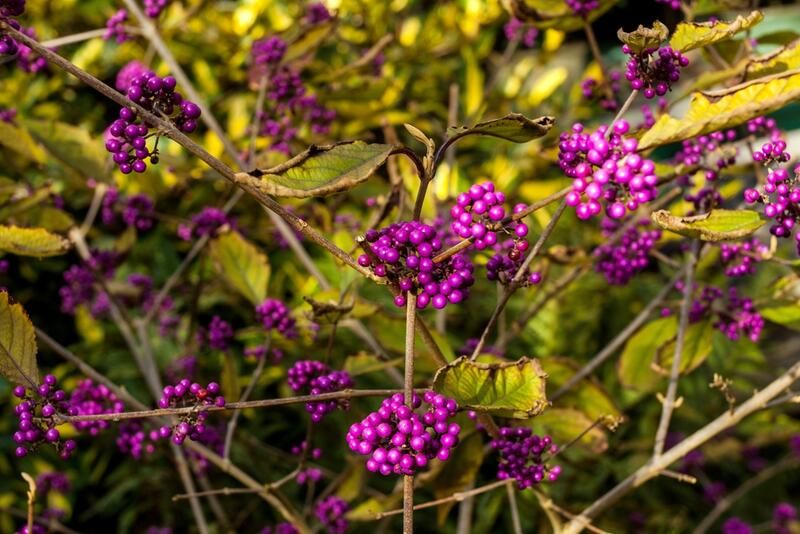
How to Grow American Beautyberry From Seeds
American Beautyberry is an easy plant to grow from seeds. You can plant American beautyberry seeds in early spring since they need to be planted before the ground warms up.
For optimal results, seed beautyberry seeds in moist, well-drained native soil. You can sow seeds directly into the ground or start your plants indoors and transplant them outside when they’re about 6 inches tall.
American beautyberry seedlings emerge in about two weeks, and they grow slowly at first. When the seedlings reach about 8 inches tall, transplant them to larger containers or the ground if you live in USDA zones 7 through 9 (otherwise wait until fall).
Keep in mind that even though you can grow the plant from seed or cuttings, the latter method is preferable because it often produces larger plants.

American Beautyberry Care Tips
American Beautyberry is a very versatile plant. It's drought tolerant and will grow in partial shade to full sun, though it prefers partial shade and/or partial sun.
If you have a tree that shades your garden space, that would be a great space for beautyberry shrubs.
It also does well in both clay and sandy soils, but just like any other plant, make sure that the soil is well-drained. It will take a while to grow but once it’s established, the beautyberry shrub will be there for years to come.
Here are some tips to help you achieve the best results:
-
Plant American Beautyberry in rich fertile soil for fast growth.
-
Plant in partial shade.
-
Water your plant regularly during the early growth stages.
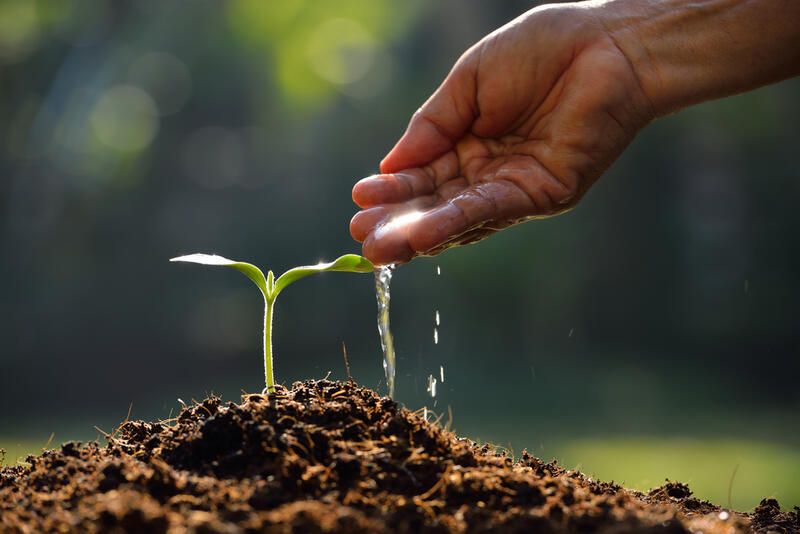
Fertilizing American Beautyberry
American beautyberry shrubs are heavy feeders and will benefit from a good dose of fertilizer throughout the growing season.
Apply a light, balanced fertilizer in early spring as soon as new growth begins and again in late summer after flowering is finished.
You can use either organic or chemical fertilizers for this purpose, but remember that if you’re applying chemical fertilizers to your plants regularly, you should only do so at half-strength.
When applying fertilizer it’s important not to overdo it—especially if you’re using an organic option like compost tea or fish emulsion! Too much fertilizer can burn your plant or cause it to develop nutrient deficiencies in the long run.
To apply any kind of liquid fertilizer, simply dilute according to package instructions then spray onto both sides of leaves until they are dampened but not dripping wet (this will ensure even distribution).
To help take advantage of water-soluble nutrients contained within these liquids, add them directly into your watering can. You can do this before filling up your can with fresh water instead of applying them on dry soil (which may make them more difficult for roots to absorb).
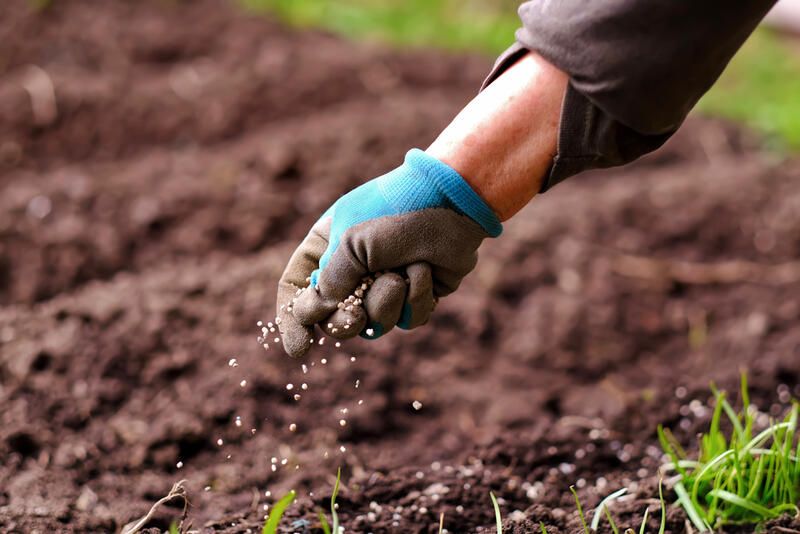
How to Propagate American Beautyberry
The young trees of Beautyberry can be planted in spring or fall. The best time to plant an American Beautyberry is early spring or late summer through fall.
The American Beautyberry can be propagated by seeds, cuttings, and grafting techniques.
Seeds require stratification for germination which means exposing the seeds to cool temperatures for several weeks before planting them outdoors or indoors in trays filled with moist potting soil.
The cuttings are best taken from dormant wood in late fall and should be planted in moist soil. If you want to propagate American Beautyberry from cuttings, place the stems in a pot filled with moist potting soil and cover them loosely with plastic wrap until they’re well-rooted (about two weeks).
American Beautyberry Pruning
American Beautyberry pruning is a little tricky because it's not an annual plant. The shrub emerges from the ground with new growth in early spring and flowers in late summer or fall.
It will die back to the ground during winter but can be pruned in early spring or late winter before new growth starts to emerge.
Here are some tips for you:
-
Prune after flowering has occurred to prevent any damage from occurring during this time of year.
-
To remove dead or damaged branches, cut them off at their base using a sharp pair of pruning shears.
-
To remove suckers that appear at ground level on the main stems, just give them a firm pull until they break free from their connection point with the base of your shrub (or use your pruning shears if they're stubborn).
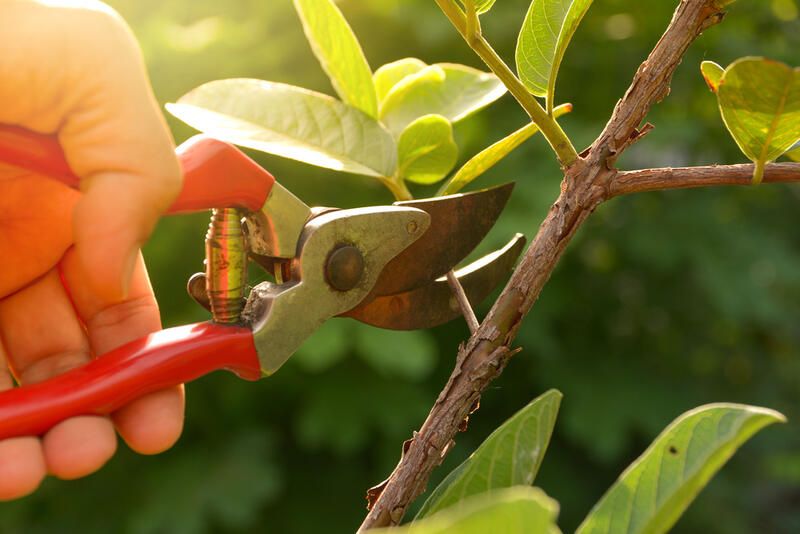
Common Pests and Diseases
American beautyberry is not susceptible to many pests or diseases, but it can be affected by aphids and spider mites.
Aphids are tiny insects that suck the sap from plants. They can cause the leaves to curl and lead to the yellowing of leaves.
Spider mites are similar in that they also suck on plant juices and can cause leaf damage similar to aphids, but they also produce webbing on branches which causes them not to grow properly.
The best way to control these pests is to keep your plants well-maintained. If you do notice any problems, try spraying them with a solution of water and dish soap, or use an insecticidal soap spray that's made specifically for aphids and spider mites.
Uses of American Beautyberry
If you're looking to use the beautyberries in your garden, there are several ways to do so.
The leaves can be used in salads or cooked and eaten as greens, while the berries have a sweet flavor that makes them perfect for jams and jellies.
Beautyberry flowers are also edible and make a tasty tea when steeped. They can also be used to make wine!
You can also use berries to make dye, and they're also used in herbal remedies. The seeds are often used as a treatment for diarrhea and dysentery.
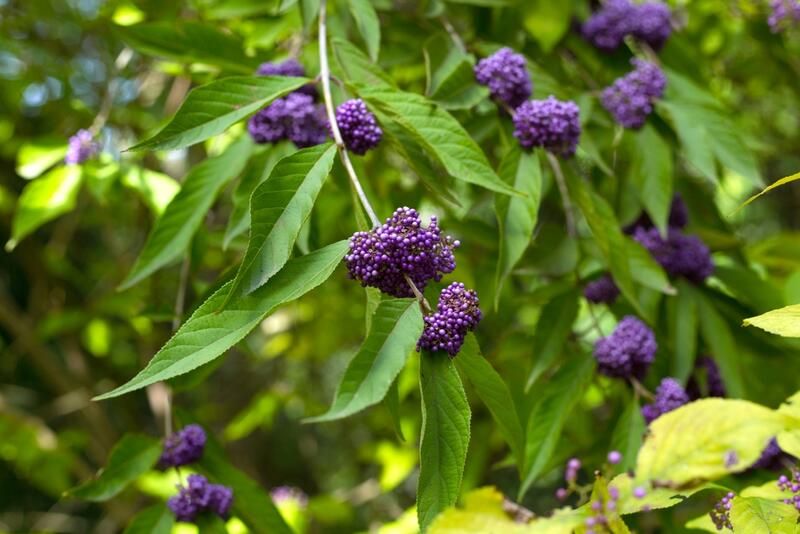
American Beautyberry Landscape Ideas
American beautyberry is a great choice for several landscape uses. They're a great addition to a garden bed, where they can be used as an understory plant for shade or planted in the middle of a sunny flowerbed. They also make excellent hedges and borders.
Here are some American Beautyberry ideas:
-
Plant American Beautyberries in rows or groups to make a colorful border along walkways and driveways.
-
Use the berries as an accent plant near the front door, under a tree, or on power lines.
-
Grow beautyberry as ground cover next to your deck, patio, or porch steps, especially if you have bare dirt around these areas.
-
Plant in containers on patios and balconies with lots of sunlight so you can enjoy the beautiful flowers throughout the spring & summer months!
In conclusion,
If you’re looking for a new flowering shrub to add to your garden, consider the beautyberry. It’s easy to grow and care for, it has beautiful flowers in spring, summer and fall, and it offers many different uses throughout the year.
And as always if you need some landscaping ideas, don't hesitate to contact ShrubHub's experts. It's free!
You can also check out our 70% discounts on 3D landscaping services!


